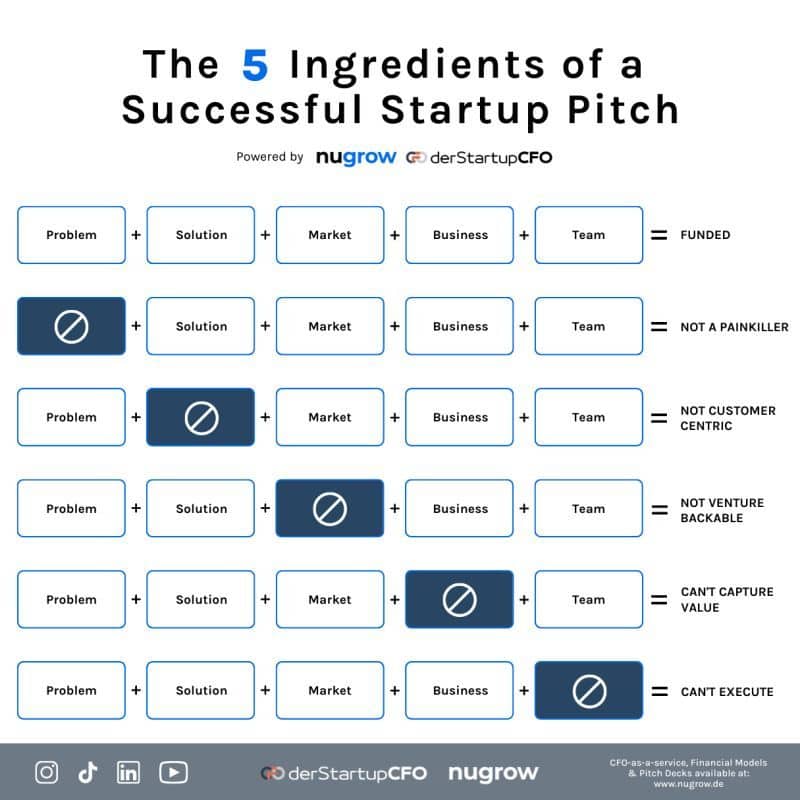
In the dynamic realm of startup investments, deciphering a promising venture from a fleeting one is a skill that investors continually hone. Sebastian Janus, a seasoned contributor to the startup ecosystem, recently shared a recipe for success in his post on the pivotal elements of a startup pitch.
Let’s delve into the key ingredients that caught his attention and explore an additional element crucial for navigating the competitive landscape: the importance of a unique competitive advantage.
The Essential Ingredients
- Problem:
The foundation of any successful startup lies in its ability to address a genuine and pressing problem. Investors seek ventures that identify and offer solutions to challenges that have a tangible impact. - Solution:
Beyond merely addressing a problem, a startup’s solution must be effective and transformative. Investors look for innovations that go beyond superficial fixes, providing meaningful and lasting value to users. - Market:
The market viability of a startup is gauged by the willingness of users to adopt or pay for the offered solution. Investors assess whether there is a genuine demand for the product or service and if users are inclined to switch from existing alternatives. - Business Model:
A clear path to growth and profitability is essential. Investors want to see a well-defined business model that outlines how the startup intends to scale and generate revenue over time. - Team:
The people behind the venture play a crucial role. Investors evaluate whether the team possesses the right skills, experience, and passion to execute the business plan successfully.
The Sixth Ingredient – Unique Competitive Advantage
In today’s fiercely competitive landscape, Janus introduces a sixth ingredient to the startup success recipe: a unique competitive advantage. This involves evaluating whether a startup has an unassailable competitive edge that shields it from potential threats. Three key questions help investors assess this aspect:
- Competitor Resilience:
Can competitors easily outperform or replicate the startup’s offerings? A robust competitive advantage should act as a barrier, making it challenging for competitors to surpass the startup’s performance. - Business Replicability:
Is the business easily replicable? Investors want to ensure that the startup’s model isn’t easily duplicated, giving it a sustainable advantage in the market. - Technology Disruption:
Can a technological shift disrupt the startup? With the rapid pace of technological advancements, investors assess whether the startup is resilient to emerging technologies that could render its offerings obsolete.

Looking Beyond the Short-Term
Investors recognize the importance of ensuring a startup’s longevity. By considering these six ingredients, including the emphasis on a unique competitive advantage, they aim to secure investments that will survive and thrive in the competitive landscape. The goal is to generate substantial returns over the long term, whether the startup’s 5th, 10th, or 15th year of operation.
Conclusion
As the startup ecosystem evolves, so do the success pitch criteria. Investors like Sebastian Janus highlight the significance of a comprehensive evaluation, emphasizing not only the fundamental elements of problem-solving and market viability but also the critical importance of a unique competitive advantage. By integrating these ingredients, entrepreneurs can craft pitches that stand out in a crowded and competitive landscape, increasing their chances of securing the investment needed for sustained success.



